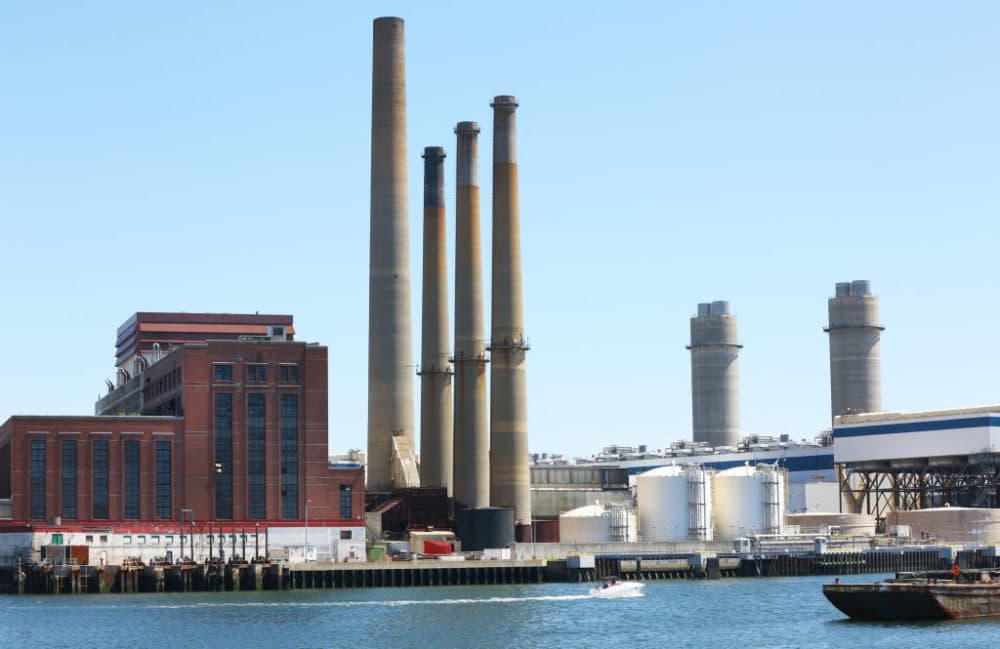Advertisement
New England's largest fossil fuel electric plant is shutting down

The Mystic Generating Station in Everett is set to shut down Friday.
As New England's largest fossil fuel-powered electric plant, its closure represents a significant shift in energy production for the region.
Joseph LaRusso, a senior advocate and manager of the clean grid initiative at the Acadia Center, says shuttering the plant shows the era of burning fossil fuels for electricity may have peaked, at least in New England.
"Not very many gas plants are going to be built in the future, right? It's going to be wind, solar, hydro, battery storage and so on," he said. "So its closure is significant."
The Mystic Generating Station is one of the nation's oldest power plants, and has provided electricity to the Boston area since the 1940s, according to the U.S. Energy Information Administration.
Plant operators announced several years ago that the station had become unprofitable. For the past two years, electricity customers have paid hundreds of millions of dollars to support the aging station, as grid operators planned for its closure.
"We were paying prices that weren't competitive to help keep this power plant open," said Phelps Turner, a senior attorney for the Conservation Law Foundation. Turner said closing the plant will also reduce emissions of local air pollutants and greenhouse gases. "We are able to now move away from both the polluting and cost implications," he said.
The shutdown of the plant is not expected to cause any power disruptions in the region.
Dan Dolan, president of the New England Power Generators Association, said that's because there have been transmission upgrades to bring more electricity into Greater Boston.
"There is always going to be the possibility of lines going down, severe storms," he said. "But overall we feel very comfortable that there's enough supply to keep the lights on moving forward."
Demand for electricity is expected to increase in coming years, with Massachusetts' goals to electrify public transportation, and put one million electric vehicles on the roads by 2030.
"New England is clearly undergoing this historic transition," Dolan said. Making sure that renewable energy can meet demands as fossil fuel plants go offline, is "the challenge we all face collectively, as we're electrifying more and more of the economy."
The nearby Everett Liquefied Natural Gas Facility, which supplied fuel to the power plant, was in danger of closing. But the state's Department of Public Utilities recently approved new utilities contracts that keep the terminal open for at least another six years.
Correction: A previous version of this story had outdated information on the status of the Everett LNG Facility. The story has been updated. We regret the error.
This article was originally published on May 30, 2024.
